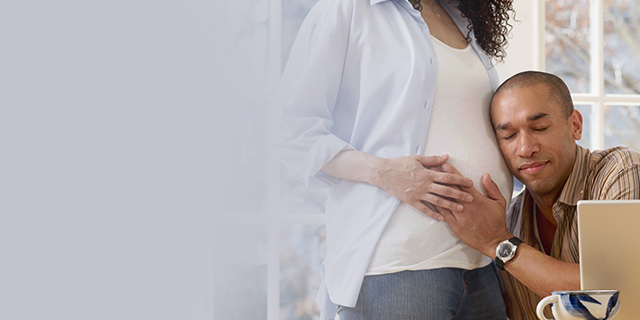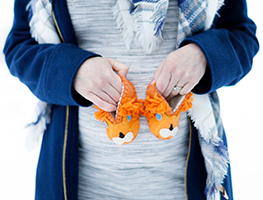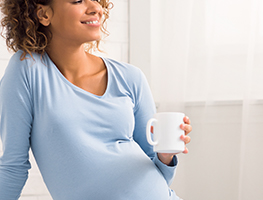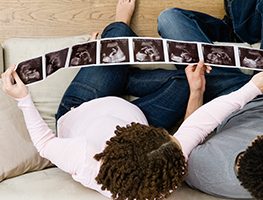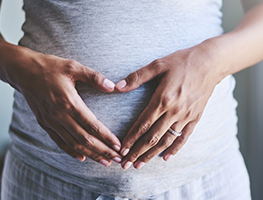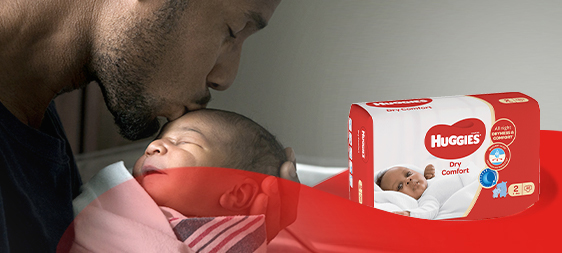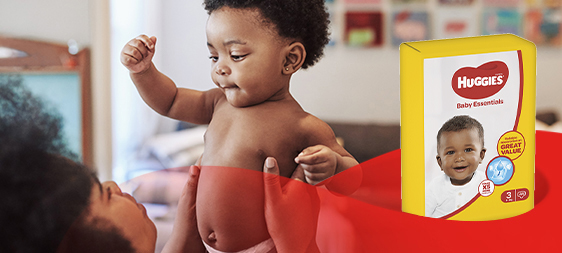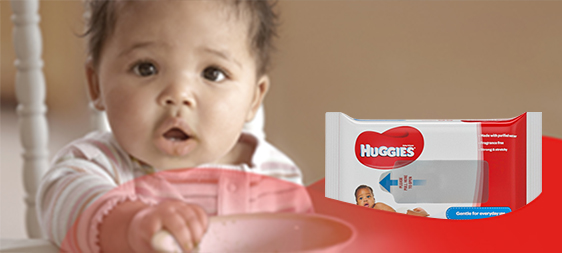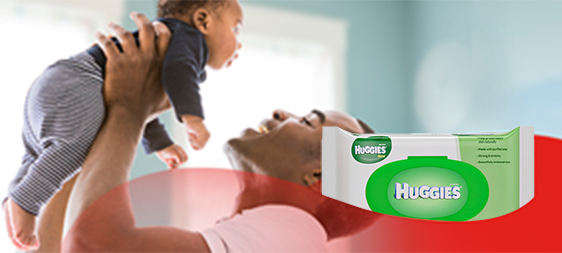Week 26 pregnant
Your baby’s eyes can actually see and you may find that baby is more active when you are out in bright sunlight. They are able to respond to touch through the abdominal wall and will move in response to gentle pressure on your tummy wall. Your baby is roughly the same size as the placenta this week.
At 26 weeks of pregnancy, you are entering into your sixth calendar month of pregnancy. You’ve probably been having monthly antenatal check-ups throughout your second trimester and are getting used to what’s involved each time. They are likely to continue at monthly intervals until around 30-32 weeks, then become fortnightly until 36 weeks; and weekly until your due date. If you are having a high risk pregnancy or you’ve had complications, you will need to be monitored more frequently.
Now, lift your shirt up
Getting used to baring your belly each time can take some getting used to, especially if you’ve had limited experience with physical checks before. Most midwives and doctors are aware of the need to respect the privacy of their clients. But if you feel awkward or some aspect of your antenatal examinations doesn’t feel right, then say so. You and your baby are healthcare consumers, with rights and responsibilities. You are your own greatest advocate and you need to feel comfortable and safe with how your healthcare is being managed.
Your physical changes this week
Your tummy is getting bigger with each passing week and by now you are probably having trouble seeing your knees when you’re standing up. Some women find their body changes alarming and unattractive and others see it for what it is. Pregnancy is nothing if not biological. How a mother feels about it all doesn’t really make much difference to the on-going changes her body is going through. There is usually a reason why pregnancy changes occur.
On average, your total blood volume has increased by around 50% since before you fell pregnant. But it won’t peak until closer to 35 weeks. All that extra circulating blood will mean you may notice your fingers and ankles swelling by the end of the day.
More Braxton Hicks contractions this week, which are making your womb harden at irregular intervals. Don’t worry unless they become painful and regular, or you start having lower back pain as well. You will find that they are more frequent after bending over, standing up, after having sex and if you climb a flight of stairs.
More gut changes for you this week unfortunately. Constipation, your old friend, continues to overstay its welcome and you may feel you’re investing more thought into your toilet activities than you really want to. Remember to drink lots of water, eat lots of fibre-rich foods and try to exercise everyday. White, processed foods won’t help, so do avoid these in favour of wholegrains.
Take it slowly when you’re standing up from now on. Many pregnant women experience pronounced postural hypotension (a drop in blood pressure) when they go from a sitting or lying position to standing. When you’re getting out of bed, sit on the edge for a minute or two and then stand up. If you feel lightheaded or as if you are going to faint, put your head between your legs and call out to someone to stand near you. If you have no choice, then sit on the floor until you return to feeling normal. You won’t be the first pregnant woman to do this and you won’t be the last.
Your emotional changes this week
By now, you have probably formed a definite opinion about whether you like or loathe being pregnant. Most women sway between the two states, though by the time they reach their due date, they’ve had enough. How you view your pregnancy will have an effect on how long your remaining weeks seem to stretch before you.
If you’ve had children before, you may feel a creeping sense of betrayal towards them. Introducing a new baby to a family changes the dynamics and well-established patterns of family life. Try to remember that although it may not seem like it now, giving your older child or children a sibling is one of the greatest gifts you can offer them.
Start thinking about child care options for your older children when you go into labour. Having a plan will help to ease your anxiety about their care and free you up mentally to focus on having your new baby. Have a back-up plan as well, in case Plan A doesn’t work out.
Your baby’s changes this week
Your baby is weighing in at just under 1 kg at around 900 grams this week. Babies at week 26 are still compact little packages and, although they stretch their arms and legs, they still spend a lot of time curled up with their legs and feet tucked up against their tiny bottoms.
Your baby’s eyes are starting to open and their eyelids are no longer fused together. Baby will learn to open and close its eyes, blink and practice focussing in the remaining few months of your pregnancy. Many parents are amazed by their baby’s wide open gaze when they are first born. Some babies don’t seem to blink at all and just stare endlessly at their parent’s faces. Make sure you have the camera ready for this special time.
Lots of baby movements from now until your 30th week. The amniotic fluid isn’t being produced in the same volume as it was a couple of weeks ago. Because your baby is bigger, with less fluid to buffer its movements, you’ll be more aware of those kicks and stretches.
Your baby is growing longer and laying down more fat. This will serve as an effective means of insulation for when it is born. An average birth weight for a baby is around 3.5 kg with pregnancy factors, genetics and individual DNA major influences on its size.
Your baby is having regular periods of rest and activity and its patterns of movement are becoming more familiar to you. Some pregnant women find their baby is very active in the middle of the night – enough to wake you from a deep sleep. A sweet snack, hearing the sound of your partner’s voice, or a sudden noise can all prompt a series of movements as well.
Hints for the week
If you’re planning on borrowing baby furniture, start organising this now. Repainting and preparing used equipment can take longer than you first imagined. Don’t leave doing these jobs until your last weeks, when your energy may be flagging and you would prefer just to rest.
Check with your midwife or doctor if you’ll need to have your haemoglobin level checked at your next antenatal check-up. Iron deficiency anaemia is common in pregnancy when the demand for a healthy red blood cell count is at its peak. Ensure you are eating lots of iron-rich foods such as red meat, eggs, good quality cereals and green leafy vegetables such as broccoli. If your iron count is too low, you may need to start taking iron tablets. They can tend to exacerbate constipation though.
Week 27 next.

